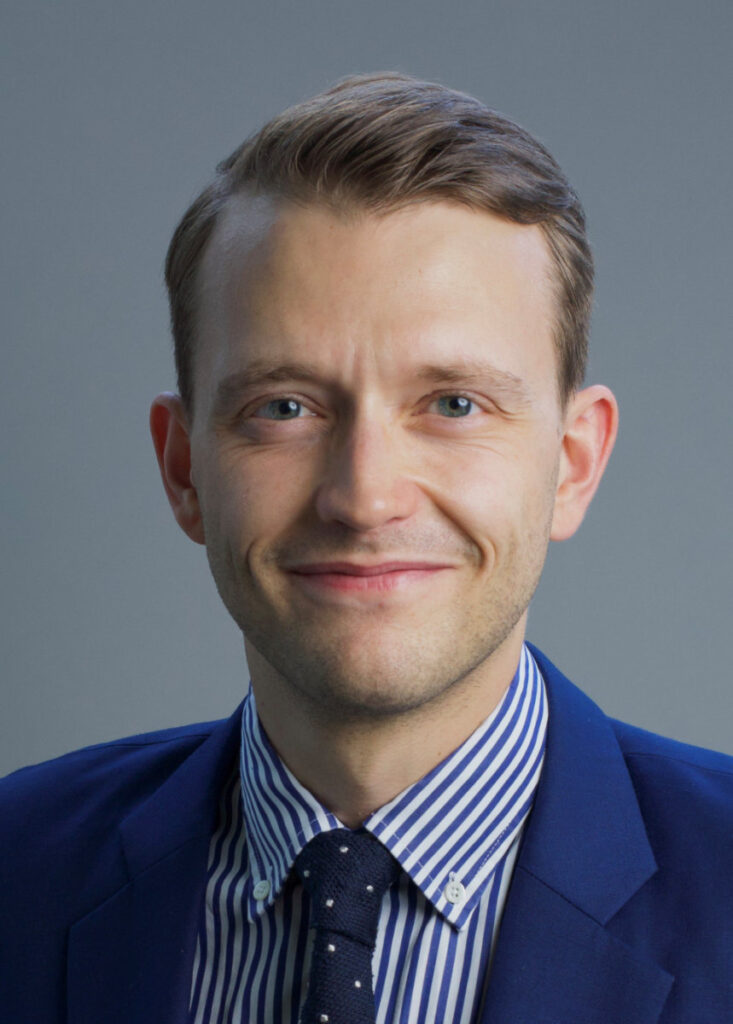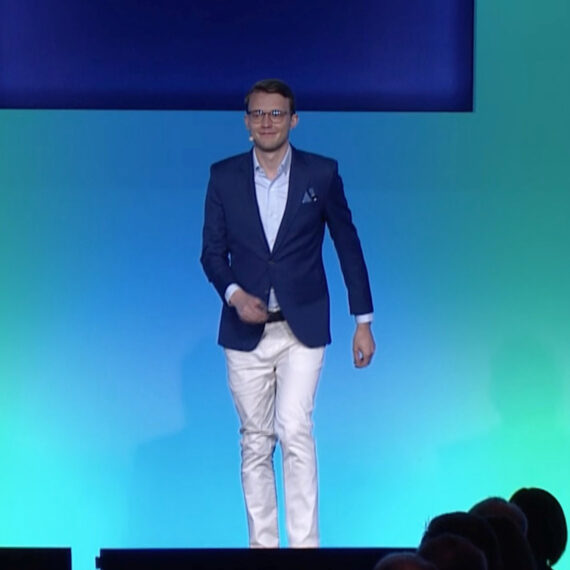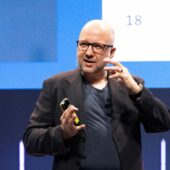In this interview, author and speaker Philipp Kristian talks about trust as a solution and a driver of future success in a complex digital world. He also talks about how digital trust can work in the age of AI.
Philipp Kristian, you emphasise trust and digital humanity as a recipe for success for the future – why is this so important and what does it have to do with digitisation and artificial intelligence (AI)?
The digital economy enables us to break down global barriers. Now, we are witnessing the rapid development of AI, a massive jump in productivity that is transforming the global economy enormously. How useful or destructive this will be is in our hands.
Artificial intelligence is beyond our rational understanding. What are the consequences?
A top manager might manage to go through several hundred pages of documents a day to formulate a position. An AI goes through tens of thousands of pages, 24 hours a day, seven days a week – without pay and without a break. On the purely rational level, we definitely cannot keep up with the pace. What we are left with is our humanity.
And what does that have to do with trust?
We trust ideas and technologies more than it makes sense to do so. Especially considering that we’re not even aware of the consequences. Twenty years ago, you could get around beautifully without a GPS. Nowadays, that’s hard to imagine. We become accustomed to technological advances; we like ideas that simplify our daily lives. We quickly forget that the world is constantly changing. Technology promises us clear, fixed, immediate answers to our questions, but of course it lacks the ability to reflect on itself. GPSs delude us into thinking that they always know the right way – but that only works if the map material is up to date. And AIs like ChatGPT like to cheat, just to give us an answer. Even if it has nothing to do with reality.
Where does this almost blind faith in progress through technology come from?
From an early age, we are taught certain ideas that are only helpful at first glance. Three of them stand out. Firstly, don’t trust yourself, because there are experts who know the answer. Secondly, don’t trust strangers. Thirdly, for every challenge, there is a definitive solution. By doing this, we simplify the world so that it fits comfortably into little boxes. Trusting technology blindly makes things easy for us. Instead of adapting our worldview to reality, we do it the other way around – and in the long run, things go wrong.
‘The more complex the world, the more we need a sense of unity’
Philipp Kristian
This relationship to technology shapes us: in management culture, for example, there is an expectation that there will be an answer to every question. This has little to do with the complex world in which we live. We must trust each other and face uncertainty as one. Then we’ll make it. Digitisation supports us, but it cannot be the solution on its own. The problems of our age require greater awareness. Sustainable progress can therefore only be achieved together.
What does this mean for management and leadership culture?
As managers, we are successful when we exemplify inclusion. A sense of unity arises where we meet as fellow humans, not in our little boxes. We need to build bridges. Otherwise we end up distinguishing between us and them. This can divide companies. If one department sticks together but can’t relate to their other colleagues, that creates problems. And we have to bridge them.
Can this be learned?
Until now, we’ve been learning that you fare better and achieve greater productivity with divisive structures. But the opposite is the case, because pursuing this approach means that cooperation will fall by the wayside and there will be no sense of unity. The more complex the world, the more we need a sense of unity. Fortunately, trust is in our nature. We just need to bring it out. Swissness is a great example of trust in a common idea and a strong sense of unity. Trust creates unity. The counterweight to trust is money. This is how we classify and organise things. In companies, it is necessary for us to reconcile the two.
Could you explain that in a little more detail?
The financial and trust economies are complementary forces that move a company. We have to trust each other to create something together – and we have to organise this process in such a way that something meaningful and valuable is created. (Laughs) I picture it as a wild dance of inclusion and division, humanity and rationality.
Modern societies have become extremely rational because of their industrial heritage. This leads to hyperrationality: a level of rationality that is actually irrational. Ironically, this results in deficits in both productivity and trust.

Philipp Kristian is committed to increasing trust and humanity in our digital future. The author of ‘The Trust Economy’ and ‘RESET’ is internationally regarded as the digital generation’s expert on trust. As a visiting professor, he brings these perspectives to leadership programmes at top international universities. As part of Swisscom Business Days 2023, he will be a keynote speaker on the topic ‘The Power of Trust in a Digital World: Why Digital Humanity is Important’.
So that’s our dilemma?
Exactly. We organise more and more and create less and less. Balance solves these problems and ensures sustainability. The digital economy wants to bring the world together and promises us more humanity. It gives us what has been lost in an industrial world. Commercially, however, the tech players are also interested in profit. These two worlds don’t fit together yet, and that bothers us.
How exactly does digital trust help us to bridge this?
A balance can be achieved by extremes that keep each other in check. That is currently the case. Or it can be created by bridging and approaching the opposing poles. That approach is more promising.
And how do we do it?
Well, the power of trust and digital humanity frees us from hyperrationality. Take, for example, human resources: the fact that we refer to employees as resources, i.e. raw materials, is absurd. You don’t define your offspring as domestic labour or inventory. The humanity with which we meet unites us. We cannot explain it rationally; we understand it intuitively.
Do you have any ideas on how to implement this?
I do. Just ask your young talents what they would like to contribute to your company and what satisfies them. Give them the opportunity to implement it – not as a favour on your part, but because it makes sense.
Is digital trust or trust in digitisation possible in the first place?
Absolutely! Digitisation enables us to balance rational organisation and human trust in a new way, and to draw from it a harmonious coexistence. How quickly we can do so depends on our awareness.
ReThink Workshop
Let’s ReThink – transformation means trust. In digitisation, in employees and in our own management. In the ReThink workshop with our experts, you will learn more about your digital maturity and the potential of your company.



